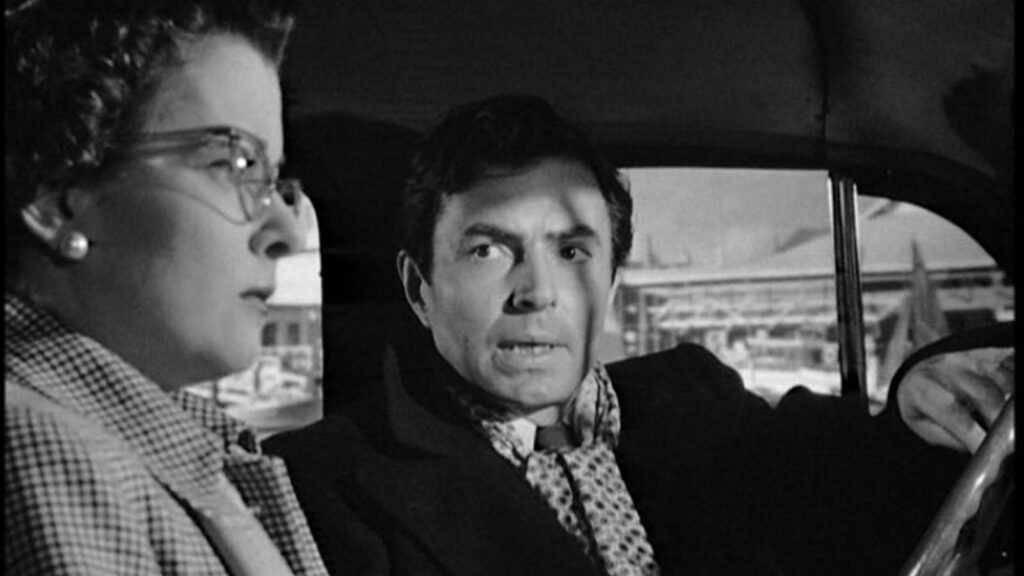
The Reckless Moment (1949) opens with Lucia Harper (Joan Bennett) going to warn Ted Darby (Shepperd Strudwick) to stay away from her seventeen year old daughter Bea (Geraldine Brooks). Darby refuses to listen and gets into a heated argument with Bea in her parents’ boathouse that results in his accidental death. Lucia disposes of the dead body but soon finds that she is being blackmailed for $5,000 by the charming Mr. Donnelly (James Mason). As Lucia struggles to raise the money to protect her daughter Mr. Donnelly begins to fall in love with his mark.
The Reckless Moment was the last film that Max Ophüls made while in exile in Hollywood. The film his full of his personal touches and his deep sense of empathy for female characters. In The Reckless Moment much of the dramatic tension is derived from the social machinations that Lucia must participate in while still clandestinely trying to raise the money for the blackmailers. Visually Max Ophüls does two things of serious note aside from the use of his patented deep focus compositions. One is to always remove light from the shot when Donnelly is present (at least until he has changed sides) and the other is to devote a good deal of screen time, without music, to the process of Lucia disposing of Darby’s body.
If one is to group The Reckless Moment into the film noir canon a few things immediately become apparent. Obviously the gendered roles of the traditional film noir are inverted with Lucia, a woman, as the reluctant protagonist and Donnelly, a man, as the femme fatale or homme fatale. But more than that Ophüls stresses that The Reckless Moment is a woman’s picture. The societal rituals and expectations that govern the lives of house wives in the forties and fifties are the primary obstacles Lucia must face. If she were a man and a detective in an actual film noir those domestic hurdles would be replaced by police procedure or the righteous moral code of the criminal underworld.
In this vein the title takes on a double meaning. Clearly the moment in question is that fatal instance when Bea hits Darby on the head, facilitating his deadly fall onto an anchor. Yet the title The Reckless Moment could also easily refer to the scene where, in only the subtext, Lucia reciprocates Donnelly’s affections. With her husband away in Berlin on business during the Christmas holiday the excitement, charm and taboo shattering nature of Donnelly offers plenty that is appealing to Lucia. The moment that she and Donnelly begin operating under the same assumption that they have fallen in love with one another is the real reckless moment in question.
The Reckless Moment is less a film noir and more of a preamble to Ophüls’ European films Madame de… (1953) and Lola Montès (1955). In a way these three films could form a thematically linked trilogy focused on the struggles of individual women who must covertly defy societal convention in order to survive.
